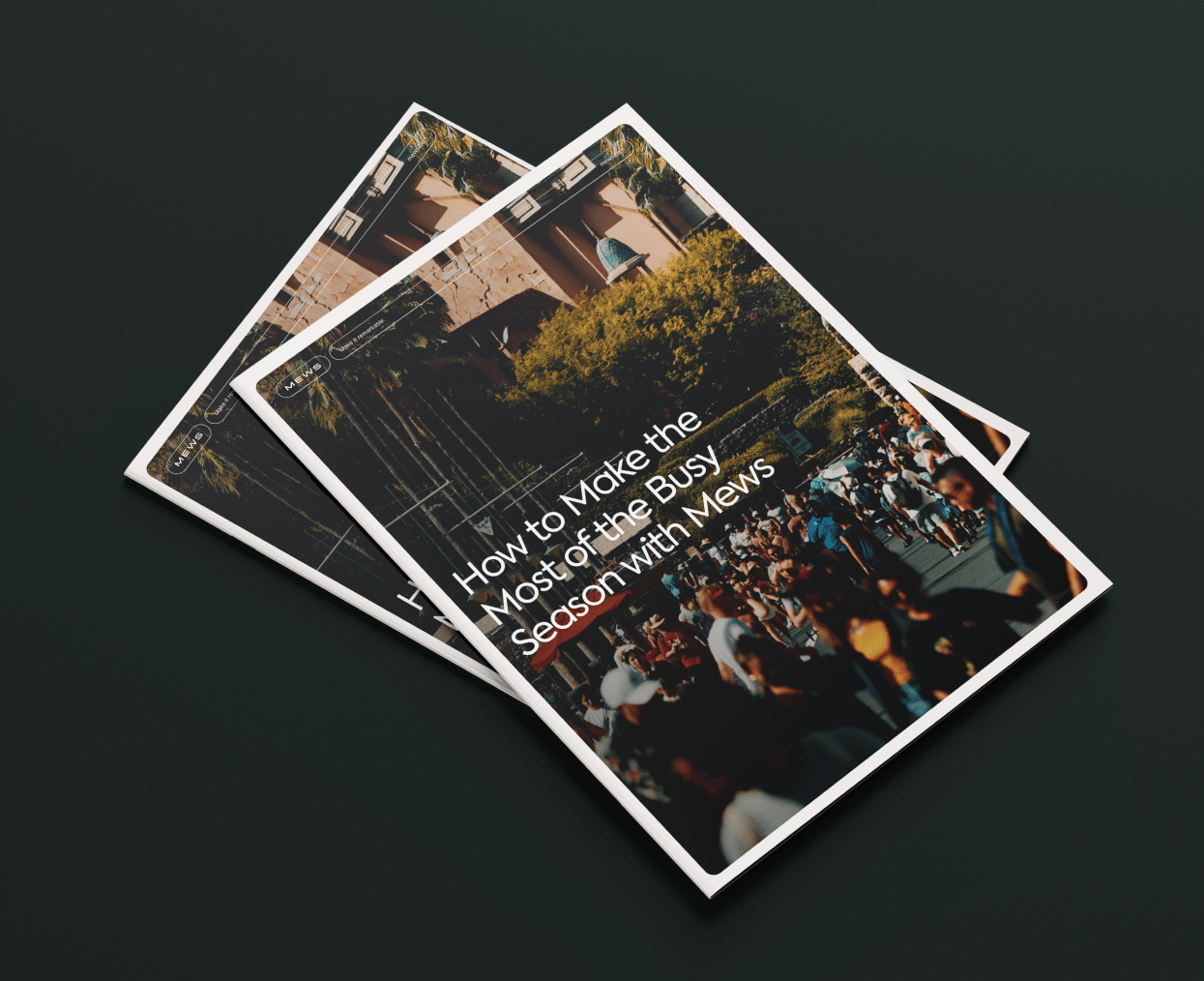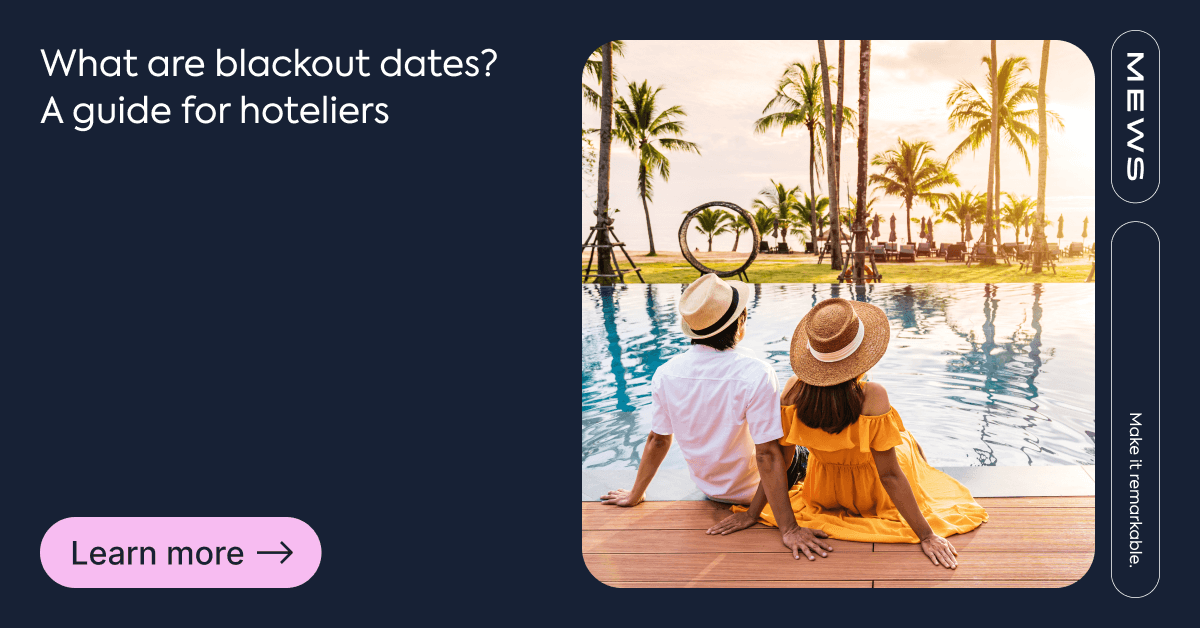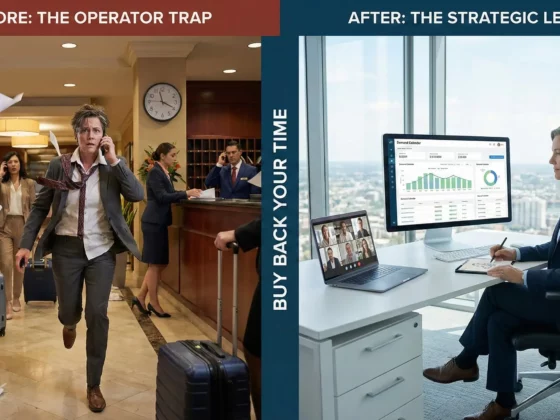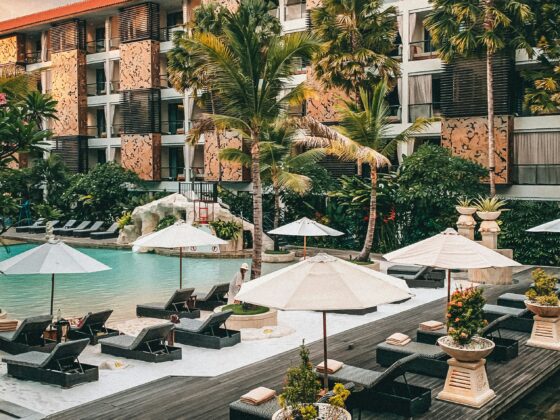What are blackout dates?
Blackout dates (or blackout periods) are specific dates when hotels prevent certain rates from being booked. These often coincide with music festivals, sporting events, local celebrations or major holidays when demand is at its highest.
For hotels, blackout dates are about optimizing hotel revenue and protecting availability for full-paying guests. For vacation rentals, they may also be used when the property is undergoing maintenance, renovations or is reserved for personal use.
Ultimately, blackout dates give hoteliers more control during high-demand periods when travelers are already willing to pay more.

Why hoteliers use blackout dates
Hoteliers typically use blackout dates to:
- Maximize revenue during peak demand by ensuring rooms are sold at standard or premium rates.
- Protect profit margins by excluding peak dates when operational costs might be higher.
- Control loyalty program costs by limiting redemptions on the most valuable nights.
- Simplify operations, helping teams plan staffing, housekeeping and inventory more efficiently.
By restricting promotional or discounted rates, hotels can make the most of busy periods while keeping inventory available for the guests who generate the most value.
Most common blackout dates
Although blackout dates vary by property and location, some patterns are consistent across the industry.
Examples include:
- Local and cultural events – music festivals, major concerts, carnivals
- Sporting events – the Super Bowl, the Olympics, championships
- Public holidays – Labor Day, Memorial Day, Thanksgiving in the US
- Seasonal peaks – New Year’s Eve, Spring Break, Easter, August in Southern Europe
These are the moments when demand spikes, making it easier for hotels to sell at higher rates.
How to identify your hotel’s blackout dates
While general patterns exist across the hospitality industry, each hotel will also have unique blackout dates. Identifying them requires a mix of data analysis and local knowledge.
- Analyze historical performance: Look at occupancy, ADR and RevPAR trends over the past few years to spot recurring peaks.
- Monitor local event calendars: Large conferences, concerts and festivals can create temporary demand spikes.
- Forecast seasonality: School holidays, summer travel seasons and long weekends often drive consistent demand.
- Use hotel technology: Property management software like Mews make it easier to pinpoint blackout dates for maximum revenue impact. You can apply restrictions across booking channels, adjust your dynamic pricing strategies using the revenue management features and automate updates to avoid price discrepancies.
By planning ahead, hotels can ensure rate restrictions are in place before demand surges.

Blackout date risks
While blackout dates can be valuable, they also carry risks if not managed carefully:
- Negative reviews if guests feel blocked from booking
- Higher booking abandonment when restrictions aren’t communicated clearly
- Frustration from loyalty program members, leading to weaker retention
- Negative brand perception if policies feel too rigid
- Operational issues if blackout dates are inconsistently applied across booking channels
The solution is clear communication and balance. Blackout dates should be transparent, applied fairly, and limited to periods of true high demand. Offering loyalty members alternative perks during peak times can also help maintain goodwill.
5 tips for using blackout dates to maximize your hotel revenue
- Capitalize on major holidays and events: Avoid offering discounts during periods when guests expect to pay more.
- Adjust blackout length based on demand: Some events last a single day (e.g., New Year’s Eve), while others stretch over weeks (e.g., summer holidays). Match blackout periods to the length of demand.
- Combine with dynamic pricing: Instead of a flat rate increase, use dynamic pricing to adjust prices based on demand. Consider adding small perks (like free breakfast for multi-night stays) to maintain value for guests paying higher rates.
- Reward loyalty program members differently: Offer alternative benefits, such as bonus points, free breakfasts, or off-peak rewards, to maintain satisfaction from your loyal guests while protecting peak-night revenue.
- Plan well in advance: Demand patterns are often predictable. Forecast blackout dates early using historical data and local event calendars, ensuring restrictions are in place before booking surges.
Conclusion
Blackout dates are a proven way to protect revenue during high-demand periods. They keep rates at their maximum, protect margins, and simplify operations, while also ensuring loyalty programs remain sustainable.
However, balance is key. Too many restrictions risk damaging the guest experience. By planning ahead, applying blackout dates strategically and using technology to manage them, hotels can maximize profitability without compromising guest satisfaction.
Looking to maximize your profit during high-demand periods?
Download our guide “14 Tips to Be the Best During Busy Season”








